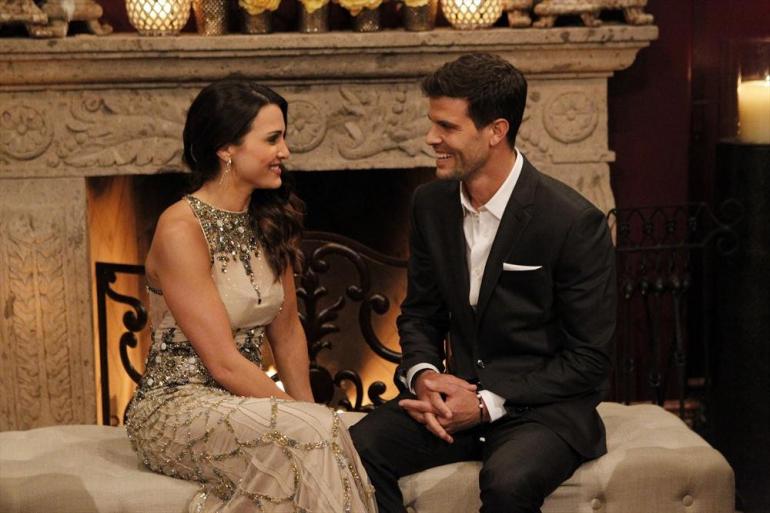
I'm not sure whether to start with death or reality TV. Perhaps unsurprisingly, but still to unsettling effect, the two have recently become entwined. In the last few seasons, the facade of The Bachelor franchise's faux-reality has been falling away bit by bit. Front-runners have sent themselves home at the 11th hour with no last minute cinematic change of heart. Bachelorettes have settled for their second choice. The word 'love' has not been uttered. Proposals have not even occurred each time! The oft repeated mantra of, "This is like a fairy tale," is being dismantled, and it's thrilling to see. This thrill speaks both to the power in the desire for fairy tales, but also in the delight at their upending and ruin.
And now, despite its best efforts, this absurd reality show has finally revealed one of the most real things: that at the end of it all, we will die. In the latest season, the sudden death of one of the men competing for the Bachelorette, has interrupted The Bachelorette fantasy entirely in a way nothing else could. Eric Hill died in a paragliding accident in the weeks between the filming and airing of the show. Most of the discussion leading up to the premiere of The Bachelorette centered around how to sincerely honor and acknowledge Hill in the context of this show where nothing is ever really honored. Producers decided not to edit him out, and Chris Harrison somberly dedicated the season to him at the top of the premiere, before a jarring transition to the inane opening rituals we all recognize.
Yet, no matter what the producers did or didn't do with Eric Hill's footage, we're watching a fairy tale with a ghost prince. I don't know if it's the gravitas of being the ghost amongst all those tanned, muscular, oafish men, but I couldn't take my eyes off Hill during the first episode. He seemed to practically glow. He magnetized the edge of every camera angle that scanned the crowd of forgettable first night boys. When he got his one-on-one time by the fireplace I wanted to hear everything he said. These were some of his last weeks of words. Who among us will have those on camera?
When a celebrity dies, we collectively mourn them, some combination of parasocial psychology, human empathy, surreal familiarity, and celebrity worship at work. We feel that we know them and we attach to some part of the death that we find sad or meaningful. There are, of course, also many people who think mourning the deaths of the famous is ludicrous since there are so many other tragedies every day, involving people whose names we'll never know. But whether death reveals itself through the famous or the non-famous, it still confounds and it still looms. Yet Eric Hill does not raise the usual questions of how to proceed with a posthumous project. What makes this public death different from others is that Eric Hill wasn't a celebrity yet; he was somewhere between famous and not-famous. We heard about him dying first and we saw him on TV second.
A fair amount of reality TV stars have died, but most of them died after their shows aired or their death interrupted an already airing show. The timing of this particular tragedy is unprecedented in the world of reality TV. TIME calls Hill's death a "glitch in the Matrix." When I see him in the Bachelorette mansion, I do expect an interruption of static, the curtain pulling back. What are we watching? We've always known it isn't real. We know it happened in the past. And yet something of the dark magic of reality TV makes us forget that, at least momentarily. But now, watching Hill, we don't forget. The surreality of his presence enhances the clarity of the truth: this spontaneous string of tropical weeks and socially awkward cocktail parties are in fact already over, the outcome already determined, the inevitable already occurred. This is the intrusion of actual real life into supposed real life.

